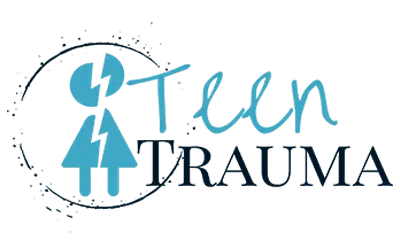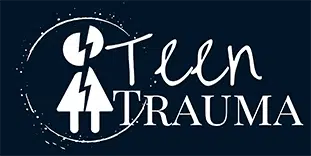Emerging from the Shadows: Hope After Trafficking
Victims of child sex trafficking and parental trafficking will need years of therapy for symptoms of post-traumatic stress disorder (PTSD) following their rescue. Even with long-term treatment and unconditional love from their parents or caregivers, exploited children struggle to manage flashbacks, depression, low self-esteem, and attachment issues well into adulthood.
Moreover, the psychological trauma suffered by victims of child sex trafficking can manifest as physical symptoms involving chronic pain, hypertension, and psychosomatic disorders.
Young victims of commercial sexual exploitation live with the fear of being found and recaptured by their abusers. These deep-seated anxieties, coupled with the challenges they face in finding jobs, completing their education, and dealing with the intense burden of shame and guilt, make it even more difficult for them to lead normal lives. In addition, victims of human trafficking often face barriers in finding and receiving appropriate healthcare and social support, which further complicates their journey towards healing and recovery.
Breaking the Cycle of Familial Sex Trafficking With Education
It is not uncommon for victims of sex trafficking to escape their situation but later return voluntarily to the trafficker. The U.S. Department of State reports that nearly 80% of girls and women return to their abusers after being rescued. Psychologists attribute this abnormal behavior to several factors:
Mental and Emotional Manipulation: Traffickers use a variety of tactics to control their victims, such as brainwashing, gaslighting, and creating a trauma bond between their victims and themselves that psychologists call Stockholm Syndrome.
Threats of Physical Violence: Victims of child sex trafficking and familial trafficking (trafficking by a child’s relatives) may be intimidated by threats of bodily harm to themselves or loved ones if they attempt to escape.
Lack of Resources: After breaking free from their abuser, victims often find themselves without shelter, money, or support. Living with human traffickers is then viewed as preferable to living on the street.
Dependency On Exploiters: Traffickers know how to foster a warped sense of emotional and financial dependency in their victims. In many trafficking cases, victims are dependent on their traffickers to sustain their addiction to drugs or alcohol.
Lack of Knowledge About Support Services: exploited pre-teens and teenagers have no idea that resources are available to help them break the trafficking cycle. They may escape their abuser for a short time but return when they are unable to find the help they need.
Education plays a pivotal role in both preventing and interrupting this cycle. Awareness campaigns and educational programs need to be directed at potential victims and liberated victims. This includes providing information about the signs of trafficking, understanding the psychological manipulation involved, and recognizing the long-term mental, emotional, and physical impact on victims.
Schools, community centers, and online platforms can serve as places where the distribution of information reaches as many people as possible.
Additionally, targeted educational support for those at risk or affected by familial sex trafficking is crucial. This can include life skills training, psychological support, and academic education tailored to address the specific needs of vulnerable victims.
Empowering once-exploited children and adults with such knowledge and life skills leads to better self-sufficiency and self-confidence, two key factors in breaking the cycle of exploitation. In addition, educational interventions must be strengthened with accessible supportive services, health care, legal assistance, and housing when necessary.
Stopping the Cycle of Human Trafficking
Parents of children who have been found and rescued from sex traffickers face what is likely to be the most heart-wrenching and difficult journey in their lives. Providing a safe, nurturing environment while coping with the emotional weight of knowing what the child has endured may seem like an impossible task.
Understanding and assimilating the devastating effects of trafficking on the child’s psychological and physical health is not something that parents can accomplish in a few weeks or months.
Here is a list of the best things a parent can do to help their child heal, renew themselves, and reclaim their independence from being victimized:
- Tell them that it’s perfectly normal to experience times of overwhelming emotions as well as the absence of emotions. Let them know that it is OK to feel whatever they are feeling at the moment.
- Explain to them that they are not to blame for being victimized by a trafficker.
- Be patient and understanding if your child does not want to talk about the details of their experience. It may take years before you learn the whole story.
- Use real-life examples to show them that they are not alone in being the victim of human trafficking. If possible, find a support group that brings together parents and children who share similar experiences.
- Whenever the situation is conducive to bolstering your child’s self-esteem, remind the child of their capacity for resilience and courage to overcome the challenges they are facing.
Trauma Counseling for Victims of Child Sex Trafficking
Trauma counseling is a specialized form of psychotherapy that addresses the mental and emotional issues of trafficked victims. Trauma counselors focus on the following when treating victims of child sex trafficking:
- Creating a confidential and therapeutic environment where the child feels safe enough to express themselves.
- Establishing a trusting, empathetic relationship with the child,
- Using cognitive behavioral therapy (CBT) to help change negative thought patterns and develop coping strategies
- Taking a holistic approach to counseling victims by also addressing their educational, social, and physical needs.
Family therapy is another counseling tool that can help families understand the impact of trauma, facilitate communication among family members, and provide a safe space where the victim can talk about their deepest thoughts and feelings with family members.










